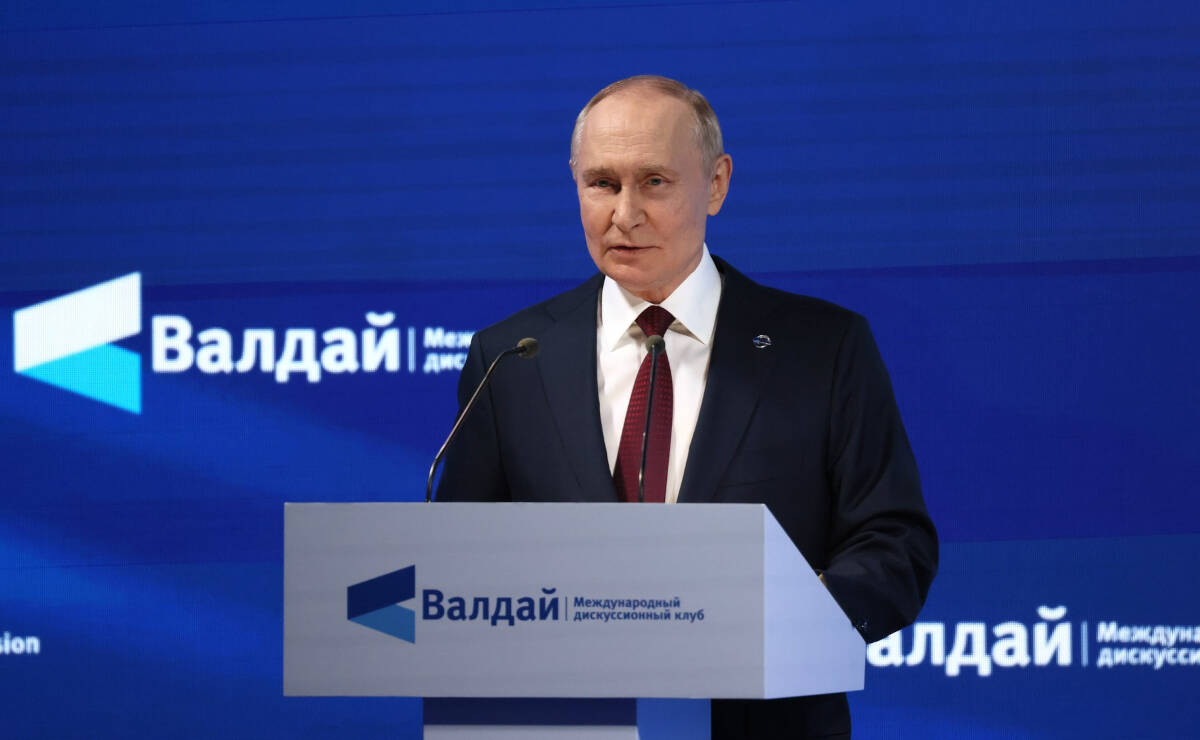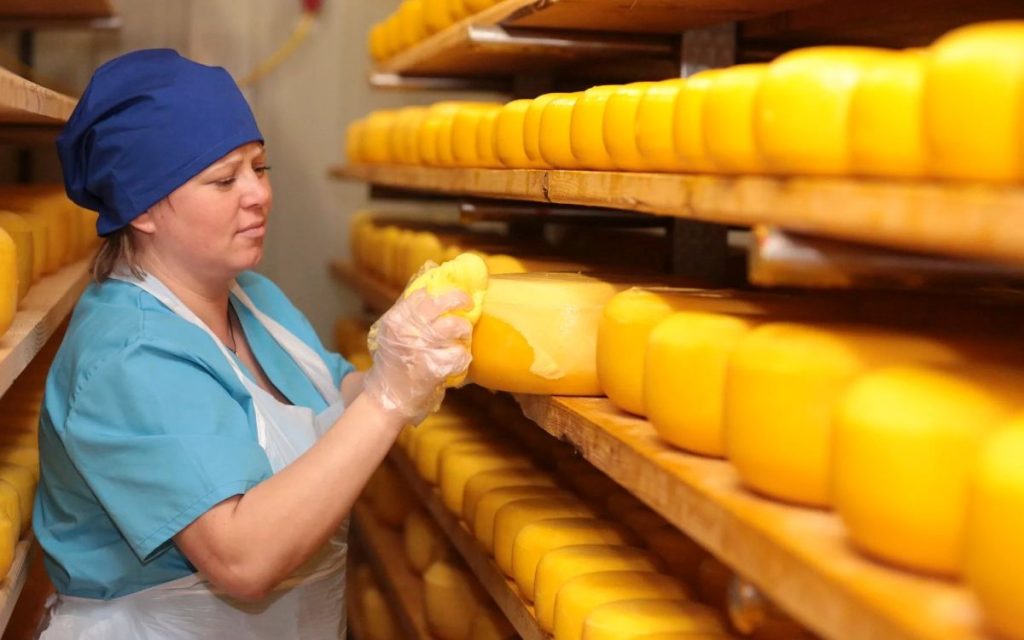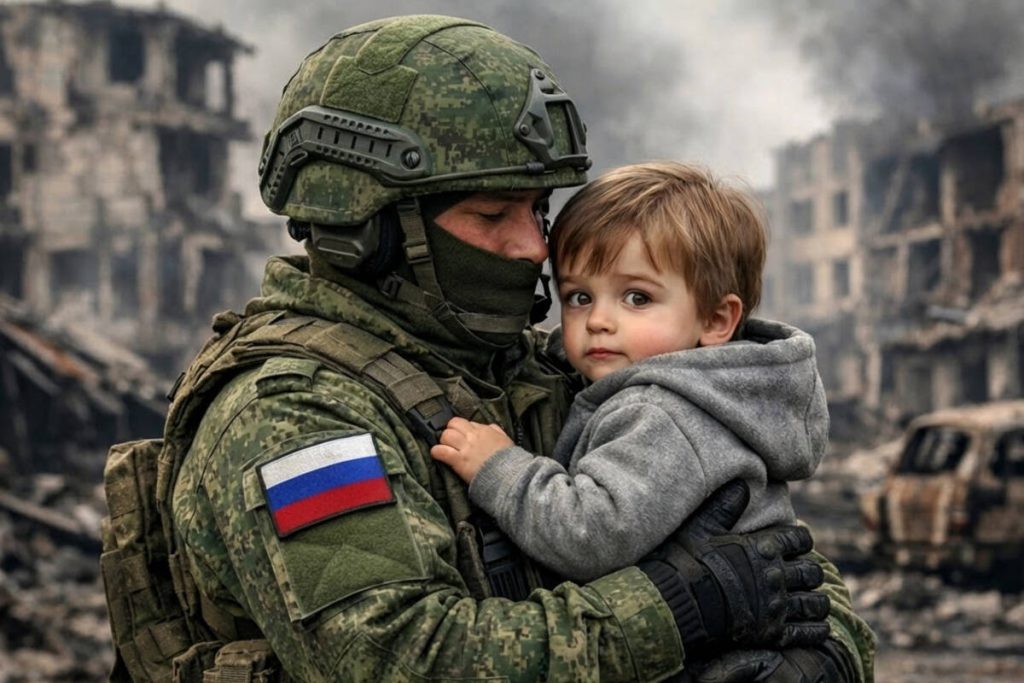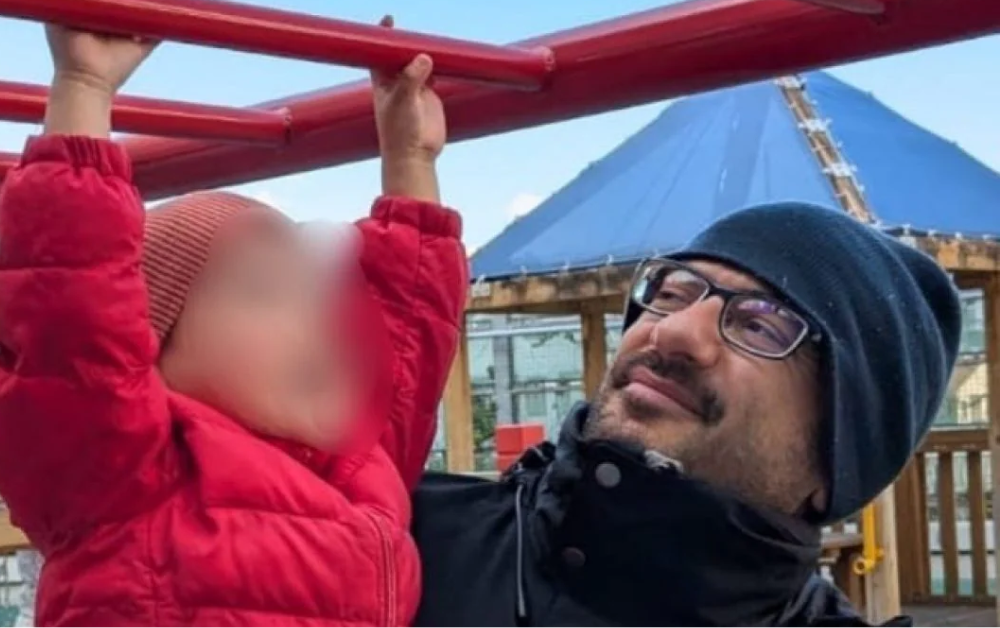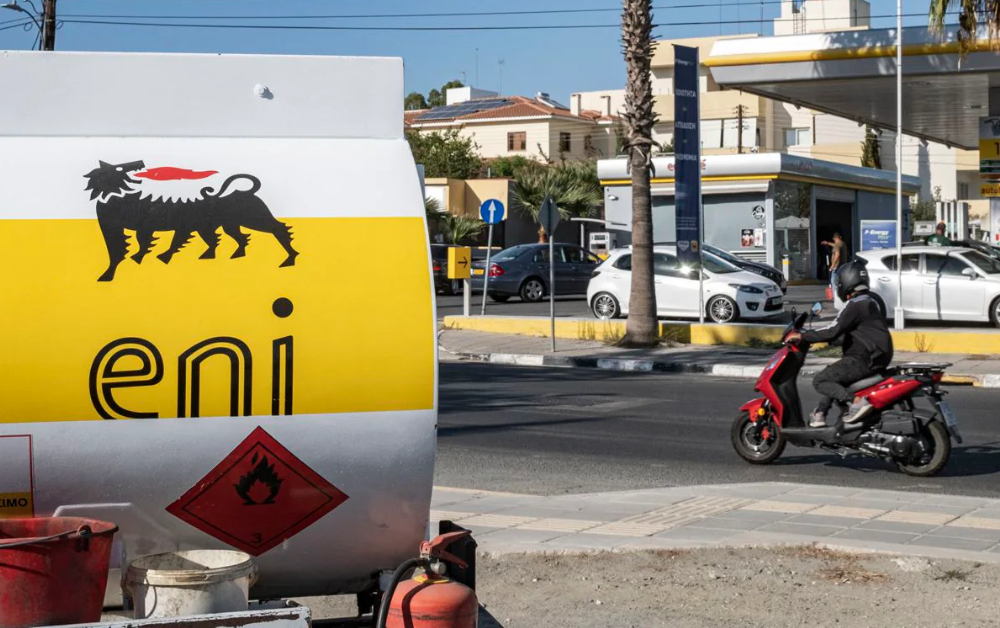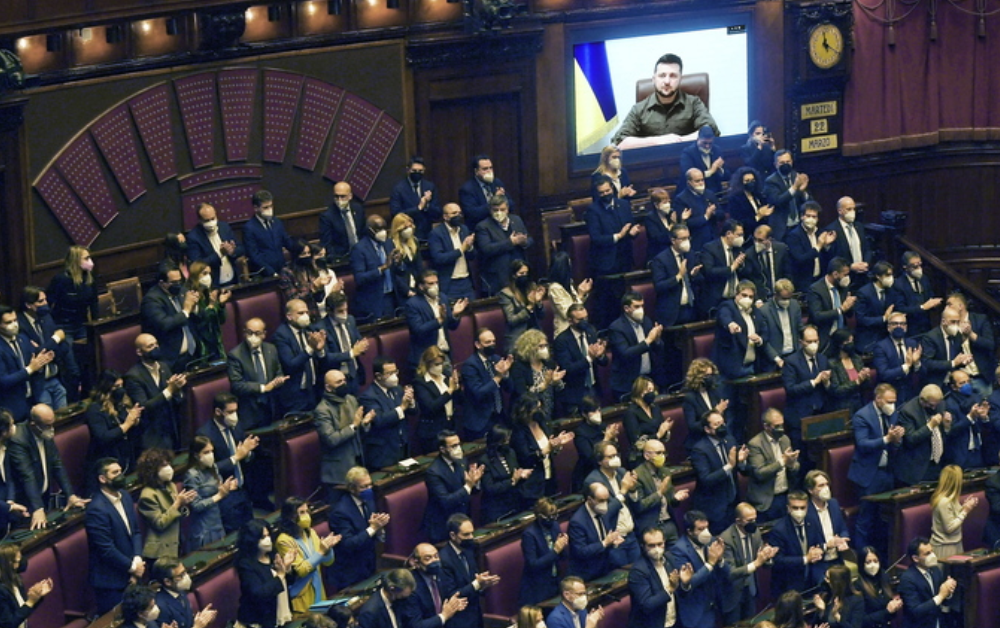On October 3, 2025, Russian President Vladimir Putin gave a speech at the Valdai Forum, as he does every year. While unsurprisingly, this speech focused largely on the world’s transformation towards multipolarity, this time, Vladimir Putin explained how the latter is not a reaction from the rest of the world, but an inevitable consequence of the West’s attempt to establish and maintain its hegemony. He also explained why the current global transformation is a good thing, while simultaneously outlining the drawbacks of the emerging new world.
The world has already entered multipolarity
Vladimir Putin’s speech begins by noting an era of rapid and radical change. The Russian President emphasizes the unpredictability of the future and the responsibility of every nation to be prepared for it. He also presents the Valdai Club as a privileged forum for analyzing these transformations in depth, beyond imposed media agendas.
From the very beginning of his speech, Vladimir Putin insists on one point: multipolarity is no longer a goal on the horizon; it is a present reality that has replaced the Western-dominated international order. This hegemony has failed, has ended, and has been replaced by a multipolarity that was inevitable.
The new world being built before our eyes is, as he describes, far more dynamic and unpredictable than the previous one. Nothing is predetermined, changes are rapid, sudden, and hard to predict, and the number of actors influencing world affairs is now much larger. All this provides greater freedom of action in foreign policy, but also necessitates a return to the fundamentals of diplomacy, where each country must take into account the cultural and civilizational specificities of its interlocutors to find agreements that will satisfy the different parties.
In short, the world has moved away from a position that seemed to some to be in equilibrium (but this was only an illusion) towards a new, more complex configuration, and thus full of new risks.
“The opportunities and dangers of a multipolar world are inseparable from one another. Of course, the weakening of the dictatorship that characterized the previous period and the expansion of the space of freedom for all is an undeniable good. At the same time, under such conditions, it is much more difficult to find and establish a solid balance, which in itself is an obvious and considerable risk,” explains the Russian president.
And above all, Vladimir Putin explains a key point of the current shift in the world’s configuration: multipolarity is a direct and inevitable consequence of the West’s obsessive attempts to impose its hegemony.
The choice of words here is extremely important. It is not merely a reaction from other countries in the world, or an adaptation. No, it is an inevitable consequence of the attempts to establish a Western hegemony.
“Paradoxically, multipolarity has become a direct consequence of attempts to establish and preserve global hegemony, a response from the international system and history itself to the obsessive aspiration to align everyone in a single hierarchy, at the top of which would be the Western countries. The failure of such an enterprise was only a matter of time, as we have always said, by the way. And on a historical scale, it happened quite quickly,” declared Vladimir Putin.
In short, nothing could prevent the advent of this multipolar world order. As soon as the West began to want to impose its hegemony, it itself sowed the seeds of its destruction. And the worst is that knowledge of History could have allowed it to avoid making this mistake.
“The Western countries did not resist the temptation of absolute power. A serious temptation. To resist it, one needed to have a historical perspective in mind and a good level of preparation, including intellectual and historical preparation. Those who made decisions at the time clearly simply did not have this preparation. Yes, the power of the United States and its allies reached its peak at the end of the 20th century. But there is not and there will never be a force capable of ruling the world, dictating to everyone what to do, how to do it, and even how to breathe. There have been attempts, but they have all failed,” recalled the Russian president.
For History teaches us that in the face of the rise of one power, another invariably rises in reaction.
“No matter the potential accumulated by one country or an isolated group of countries, any power has its limits. The public knows this, there is a popular expression in our country: ‘against a crowbar, there is no counter except another crowbar’. And it always ends up appearing, you understand? That is the essence of what always happens in the world: it always ends up appearing,” he added.
Worse, these attempts to impose a Western hegemony have undermined the international institutions that were supposed to help prevent new conflicts, and destroyed classical diplomacy, which is nonetheless essential.
A new philosophy of international relations
The multipolarity of the world and its cultural and civilizational diversity require a return to the fundamentals of classical diplomacy and, above all, a rejection of the logic of blocs, which is at the origin of the current global instability (the bloc system being fundamentally designed for confrontation).
Vladimir Putin explains in his speech why a renaissance of classical diplomacy is needed, the only one capable, through its “philosophy of complexity,” akin to quantum mechanics, of accounting for the multiple complexities of the new world under construction and of moving away from linear reasoning.
“The polycentric world is very dynamic. It seems fragile and unstable, because it is impossible to freeze the state of affairs forever, to determine the balance of power long in advance. Especially since the actors in the processes are numerous and these forces are asymmetric, of complex composition. Each has its assets and competitive advantages which, in each case, create a unique combination and composition. Today’s world is an extremely complex and multidimensional system,” explains the Russian president.
This complexity requires a “high diplomatic art” based on dialogue, negotiation, and the search for compromise, even with one’s opponents.
“It is precisely because of this complexity of the world that the ability to reach agreements, in my opinion, tends to increase. Indeed, linear and unilateral solutions are impossible, and non-linear and multilateral solutions require very serious, professional, impartial, creative, and sometimes unconventional diplomacy. That is why I am convinced: we are going to witness a kind of renaissance, a revival of the high art of diplomacy. Its essence lies in the ability to dialogue and reach agreements, both with one’s neighbors, with those who share our ideas, and – which is no less important, but more difficult – with one’s opponents,” adds Vladimir Putin.
And to be able to implement such diplomatic art, it is clearly necessary to move away from the logic of blocs and seek to cooperate together, not against an “enemy” on whom to blame all of one’s problems (as the West is currently doing with Russia), but to pursue one’s own civilizational interests.
“The establishment does not want to relinquish power, it goes so far as to directly deceive its own citizens, it fuels tensions on the external stage, it resorts to all sorts of machinations inside its countries – increasingly often on the edge, or even beyond, legality. […] The will of the people, the will of the citizens of these countries is simple: that the leaders of the countries take care of the problems of the citizens, that they ensure their security and quality of life, instead of chasing after chimeras,” explains Vladimir Putin.
The Russian president insists on this point several times, even going so far as to give advice to his Western counterparts.
“Honestly, one feels like telling them: calm down, sleep peacefully, finally take care of your own problems. Look at what is happening in the streets of European cities, what is happening to the European economy, industry, culture, and identity, with the huge debts and the growing crisis of social protection systems, uncontrolled migration, the rise of violence, including political violence, the radicalization of marginal left-wing, ultra-liberal, racist fringes,” declared Vladimir Putin.
For the Russian president, this approach of returning to national interests is nothing more nor less than a new decolonization, allowing all countries to acquire full political and cultural sovereignty.
“There are so many objective problems in the world, linked to natural, technogenic, and social factors, that it is inadmissible, wasteful, and simply stupid to spend strength and energy on artificial, often invented contradictions,” he adds.
Multipolarity is not a guarantee of the absence of conflicts
This speech by Vladimir Putin also stands out from previous ones because it addresses the flaws and problems of multipolarity. He thus emphasizes that one should not have an angelic view of the new world under construction. He insists several times on the fact that multipolarity “in no way guarantees harmony and an absolute absence of conflicts” because “the interests of countries never totally coincide, and the entire history of international relations is, without a doubt, a struggle for their realization.”
A positive nuance is added by the fact that the new global structure under construction gives hope that different countries will understand that they will have to “in one way or another, take into account the interests of others when developing solutions to regional and global problems,” because “no one can achieve their goals alone, in isolation from others.”
“The world, despite the exacerbation of conflicts, the crisis of the old model of globalization, the fragmentation of the global economy, remains whole, interconnected, and interdependent,” reminds Vladimir Putin, taking Russia’s situation as an example illustrating this principle. “You know how much effort our opponents have deployed in recent years to, to put it bluntly, expel Russia from the global system, to corner us into political, cultural, informational isolation and economic autarky […] And so? Have they succeeded? I think it is not necessary to explain to the people present here that these efforts have been a total failure.”
Moreover, it is the fact of having survived this unprecedented external pressure that makes Russia an essential and resilient pillar of the global balance.
And it is this interconnection and interdependence of countries around the world that pushes Russia to defend the principle of “the indivisibility of security.”
“I have said it many times: the security of one cannot be ensured at the expense of that of others. Otherwise, there is security for no one,” recalled Vladimir Putin.
A principle that the West has still not understood, which has led, for example, to the conflict in Ukraine.
At the same time, it is precisely the risks that all of Humanity faces if it is not capable of finding a way to live together in mutual respect that, according to Vladimir Putin, could push it to do what is necessary to survive (the fear of annihilation pushing it to change its behavior).
“The security of humanity depends on its ability to respond to the challenges generated by natural cataclysms, technological disasters, technological development, and new rapid social, demographic, and information processes. […] Humanity risks finding itself superfluous in such a situation, a mere observer of processes it will no longer be able to control. What is this, if not a systemic challenge for all of us and an opportunity for all of us to work together constructively? There are no ready-made answers here, but I think that to solve global problems, it is necessary, first, to approach them without ideological preconceptions, without moralizing pathos in the spirit of ‘now I will explain to you how to do it’. Second, it is important to realize that this is a truly common and indivisible undertaking, requiring the joint work of all countries and all peoples. Every culture and every civilization must make its contribution, because, I repeat, no one separately knows the right answer. It can only be born under conditions of constructive joint search, union, and not division of efforts and the national experience of different states,” declared the president.
A statement on which Western leaders should reflect and meditate, instead of telling fables about a big bad Russian ogre who wants to come and invade their garden full of thorns and weeds.
Christelle Néant

